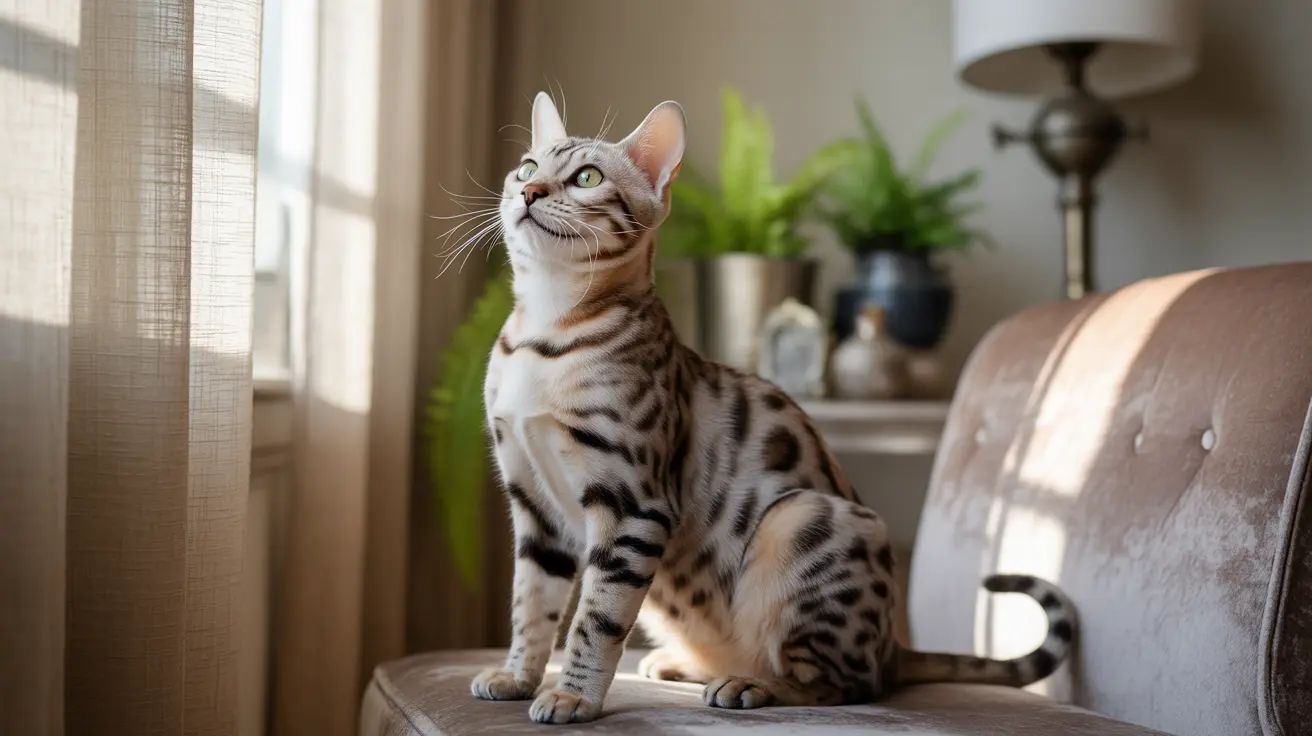The Extraordinary Sensory World of Cats
Cats possess remarkably sophisticated senses that far exceed human capabilities. Their hearing range extends up to 85 kHz, compared to humans' mere 20 kHz, allowing them to detect sounds we can't perceive. This enhanced hearing means your cat might be tracking sounds from:
- Small creatures in the walls or ceiling
- Mechanical vibrations from pipes or electrical systems
- Insects moving within walls
- Sounds from neighboring apartments or outside
Additionally, cats can see ultraviolet light and detect subtle movements invisible to the human eye. This enhanced vision might cause them to notice light patterns, dust particles, or even the UV trails left by insects on your ceiling.
Medical and Behavioral Considerations
While most instances of ceiling-staring are harmless, sometimes this behavior can indicate underlying health issues:
Potential Medical Causes
- Feline hyperesthesia syndrome (FHS)
- Vision problems or eye conditions
- Neurological disorders
- Cognitive dysfunction in older cats
Behavioral Factors
- Natural hunting instincts
- Environmental stimulation
- Stress or anxiety
- Boredom or understimulation
Environmental Triggers and Solutions
Understanding what might trigger your cat's ceiling-gazing can help you address any concerns:
Common Environmental Triggers
- Moving shadows or light reflections
- Changes in air pressure or temperature
- Unfamiliar sounds or vibrations
- Actual insects or pests
Solutions and Management
- Provide engaging toys and activities
- Create vertical spaces for exploration
- Maintain regular play sessions
- Address any pest issues promptly
When to Consult a Veterinarian
While ceiling-staring is typically normal, certain signs warrant professional attention:
- Excessive vocalization during staring episodes
- Unusual aggression or anxiety
- Physical symptoms like twitching or seizures
- Dramatic changes in behavior or routine
Frequently Asked Questions
Why do cats stare at the ceiling for long periods?
Cats may stare at the ceiling due to their acute hearing and vision, allowing them to detect sounds, movements, or light patterns that humans cannot perceive. This behavior often reflects their natural hunting instincts and environmental awareness.
Can a cat's staring at the ceiling indicate hearing sounds or seeing things humans cannot?
Yes, cats have superior hearing and vision capabilities that allow them to detect ultraviolet light, ultrasonic sounds, and minute movements that are imperceptible to humans. This often explains their seemingly mysterious ceiling-staring behavior.
Is it normal for cats to fixate on a spot on the ceiling due to medical or neurological issues?
While occasional ceiling-staring is normal, persistent fixation might indicate medical conditions like feline hyperesthesia syndrome, vision problems, or neurological issues. If the behavior seems excessive or concerning, consult a veterinarian.
How can I tell if my cat's ceiling staring is due to boredom or health problems?
Observe other behavioral changes and context. If the staring occurs alongside normal activity and your cat remains otherwise healthy and engaged, it's likely normal behavior. However, if accompanied by concerning symptoms or changes in routine, consult a vet.
What should I do if my cat suddenly starts staring at the ceiling and meowing?
First, check for environmental triggers like insects or unusual sounds. If the behavior persists or is accompanied by distress, unusual vocalization, or other concerning symptoms, schedule a veterinary examination to rule out medical issues.
Remember that while ceiling-staring can seem mysterious, it's usually a normal expression of your cat's incredible sensory capabilities and natural instincts. By understanding the reasons behind this behavior, you can better assess when it's simply your cat being a cat and when it might need professional attention.






